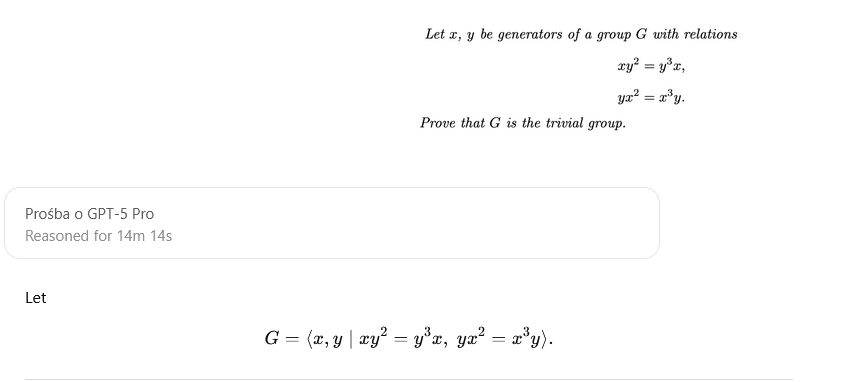[Weekly Review] We saw a future where Intelligence Eats Software at OpenAI's Dev Day
Sora seemingly throws copyright concerns to the wind, Huawei and Samsung create tiny, efficient, open source models, AMD ushers closer to OpenAI
Field Notes: The Latest Observations
We wrote about “Intelligence as OS” earlier this year: how AI models could replace the traditional stack of apps, browsers, as we know it today. This seems to be coming true.
In our breakdown of OpenAI’s Dev Day 2025, learn how they introduced more of the stack that will lure developer mindshare and businesses over to the OpenAI platform. Soon, you might never need to open a browser again to order food or purchase flight tickets. Instead, they will all appear within your ChatGPT window.
The Download: News That Mattered This Week
OpenAI now worth $500 billion, possibly making it the world’s most valuable startup: OpenAI could now be the world’s most valuable startup, ahead of Elon Musk’s SpaceX and TikTok’s parent company ByteDance, after a secondary stock sale designed to retain employees at the ChatGPT maker. Current and former OpenAI employees sold $6.6 billion in shares to a group of investors, pushing the privately held artificial intelligence company’s valuation to $500 billion.
Why this matters: Could OpenAI be the first trillion-dollar IPO in history?
Sam Altman says Sora will add ‘granular,’ opt-in copyright controls: As Sora hits 1M downloads on the app store, OpenAI may be reversing course on how it approaches copyright and intellectual property in its new video app Sora. In a blog post, Altman said the company is already planning two changes to Sora, first by giving copyright holders “more granular control over generation of characters, similar to the opt-in model for likeness but with additional controls.” The key word here appears to be “opt-in,” suggesting that OpenAI will stop users from creating videos with copyrighted characters unless studios and others rightsholders have actually given Sora permission to do so.
Why this matters: OpenAI seems to have thrown copyright concerns to the wind with their release of Sora 2, where users have been creating AI-generated content with IP characters like Pikachu and others. We haven’t seen any full push back from IP holders yet, but disgruntledness is growing.
Huawei’s new open source technique shrinks LLMs to make them run on less powerful, less expensive hardware: Huawei’s Computing Systems Lab in Zurich has introduced a new open-source quantization method for LLMs aimed at reducing memory demands without sacrificing output quality. The technique, called SINQ (Sinkhorn-Normalized Quantization), is designed to be fast, calibration-free, and easy to integrate into existing model workflows.
Why this matters: Across models of different sizes, SINQ cuts memory usage by 60–70%, depending on architecture and bit-width. This makes it possible to run models that previously needed high-end enterprise GPUs (like NVIDIA’s A100 or H100) on significantly more affordable hardware, such as a single Nvidia GeForce RTX 4090 (around $1600), instead of enterprise hardware like the A100 80GB ($19,000) or even H100 units that exceed $30,000.
GPT-5-Pro just solved the Math problem that no other LLM could solve. Took 14 minutes without any internet search. An Oxford and Cambridge paper claimed that no LLM could solve ‘Yu Tsumura’s 554th Problem’.” OpenAI’s GPT‑5 Pro produced a full proof in about ~14 minutes.
Why this matters: This is the first model to solve this task completely. Could this be indicators of progressive milestones towards AGI?
OpenAI teams up with AMD in multibillion-dollar deal to expand AI compute capacity: OpenAI has entered into a major partnership with AMD to expand access to the computing power needed for its AI models. The deal will see OpenAI deploy 6 gigawatts of GPUs, with the first phase using AMD’s Instinct MI450 chips expected to begin in the second half of 2026. As part of the new agreement, AMD has granted OpenAI a warrant for up to 160 million shares of AMD common stock, contingent on performance milestones.
Why it matters: The AMD partnership comes on the back of a major OpenAI and Nvidia collaboration. OpenAI is securing as much compute power as it can get its hands on, across as many providers as possible.
Double Click: Fast Facts & Long Reads
Sam Altman says ChatGPT has hit 800M weekly active users (TechCrunch)
OpenAI’s Sora soars to No. 1 on Apple’s US App Store (TechCrunch)
Scientists grow mini brains to power future computers (The Business Standard)




